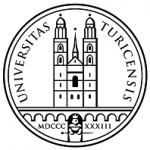项目介绍
About the course
Both in Classical languages and literature, and in ancient history, the DPhil programme is a research degree intended to make it possible for the successful candidate to aspire to a career in research and teaching at university level anywhere in the world where the Classical subjects are studied.
The DPhil takes the form of the composition of a substantial dissertation, of up to 100,000 words, based on new research on a subject of your choice.
The best dissertations are published, many in the Oxford University Press series of Classical monographs which exists for this purpose.
The vision of the DPhil as a necessary stage of an academic career, following on from master’s-level education and preparing for postdoctoral work and beyond, is reflected in five other ways:
- Doctoral students are required to set the topics of their individual specialisation in a larger understanding of developments in the field across the world.
- They are encouraged to pursue a diversity of scholarly interests on the side of working on their doctoral dissertation, so as to start building a larger portfolio of specialities. They may produce articles or review books in areas somewhat different from that of their dissertation, and towards the end of their doctoral work may begin to contemplate a postdoctoral project.
- The Classics Faculty assists doctoral students in continuing to develop necessary research skills, and acquiring or improving knowledge of relevant ancient and modern languages. Competence in Latin and/or Greek is an admission requirement.
- Doctoral students can be trained and given experience (with mentoring) in undergraduate teaching of several different kinds, eg class, lecture, tutorial.
- There are other structures, within the Classics Faculty, the Humanities Division and the wider University, to help with career-development and with academic placement.
Finally, it is fully recognised that some students will choose not to pursue a professional career in Classics, and the structures mentioned in the points above are tailored to their needs too. The experience of the Classics DPhil programmes is intended to be personally fulfilling and intellectually enriching in itself, and the cognitive skills required are highly transferable to other walks of life.
Examples of recent DPhil thesis titles include:
| Thesis title | Supervisor name(s) |
| The Civic Virtue of philotimia: Rhetoric, Ideology and Politics in Democratic Athens | Professor T Rood and Professor R Thomas |
| Echoes of the Republican Past: Seneca’s Tragic Chorus and Earlier Latin Literature | Professor T Reinhardt and Professor S Harrison |
| Catullus: Lyric Poet, Lyricist | Dr G Trimble and Professor L Tunbridge |
| The Poetics of Libraries and Book Collections in Horace | Professor S Harrison |
| Wonder and the Marvellous from Homer to the Hellenistic World | Professor F Budelmann |
| ‘I’m classic now’: Byron’s Engagement with Antiquity | Professor S Harrison and Professor F Macintosh |
| Coptic Interference in the Syntax of Greek Letters from Egypt | Professor A Willi and Dr G Schenke |
| The Reception of Homer in Modern Science Fiction Literature | Dr L Pitcher |
| Conflicted Fatherhood in Greek Tragedy | Professor R Rutherford |
| Recognizing Epiphany: Exploring the Theme of Epiphany in the Epics of Homer, Apollonius, and Vergil | Professor R Rutherford |
The faculty welcomes applications for part-time study on the DPhil. Part-time students are fully integrated into the research culture of the Classics Faculty and afforded all the same opportunities and support as full-time students.
The faculty appreciates that part-time research students will have non-standard attendance and work patterns. Although there is no requirement to reside in Oxford, part-time research students must be able to commit to attendance in Oxford at least once a week during Weeks 0 to 9 of each term, in order to meet with their supervisor, participate in research seminars and undertake skills training.
It is not possible to study for the DPhil in Classical Languages and Literature by distance learning.
Please see the Graduate admissions part of the Classics website for more material, including the current handbook for the course.
Supervision
The allocation of graduate supervision for this course is the responsibility of the Faculty of Classics and it is not always possible to accommodate the preferences of incoming graduate students to work with a particular member of staff. Under exceptional circumstances a supervisor may be found outside the Faculty of Classics.
You will be appointed a supervisor or supervisors with relevant expertise, who will support you throughout your doctoral work, beginning with the formulation of the topic and ending with the final examination.
Assessment
In most cases, you will initially be enrolled as a Probationary Research Student (PRS). You will normally apply to transfer status from PRS to full DPhil student in your third term. Transfer of status is assessed by two examiners on the basis of a 7,000-word sample of written work, a statement of your proposed research and a viva.
You will normally apply for confirmation of your DPhil status at the end of your second year. This is assessed by two examiners on the basis of a 10,000-word sample of written work, a detailed thesis plan and a viva. You will also be required to provide evidence of reading proficiency in German and one other language of scholarship (normally either French or Italian) in order to pass confirmation of status; the faculty organises dedicated classes on these languages.
The degree is awarded on the basis of a thesis of up to 100,000 words based on original research; you are required to discuss the thesis at a viva with two examiners, normally one internal, one external.
Graduate destinations
When details on graduate destinations were last collected, the faculty found that an unusually high percentage of their successful DPhil students (56%) were in university teaching or research posts five years after finishing their doctorates. Others go into a variety of occupations, including teaching, publishing, administration, business and other professions.
Changes to this course and your supervision
The University will seek to deliver this course in accordance with the description set out in this course page. However, there may be situations in which it is desirable or necessary for the University to make changes in course provision, either before or after registration. The safety of students, staff and visitors is paramount and major changes to delivery or services may have to be made in circumstances of a pandemic (including Covid-19), epidemic or local health emergency. In addition, in certain circumstances, for example due to visa difficulties or because the health needs of students cannot be met, it may be necessary to make adjustments to course requirements for international study.
Where possible your academic supervisor will not change for the duration of your course. However, it may be necessary to assign a new academic supervisor during the course of study or before registration for reasons which might include illness, sabbatical leave, parental leave or change in employment.
For further information please see our page on changes to courses and the provisions of the student contract regarding changes to courses.
录取要求
-
a master’s degree with scores at the same level as first-class or high upper second-class honours in a relevant subject; and
-
a first-class or strong upper second-class undergraduate degree with honours in Classics or a similar course of academic study with substantial course components in the area of Classics.
-
If you apply whilst studying for a master’s degree, these scores may be required as a condition of any offer made.
联系方式
电话: +44 1865 270000相关项目推荐
KD博士实时收录全球顶尖院校的博士项目,总有一个项目等着你!






